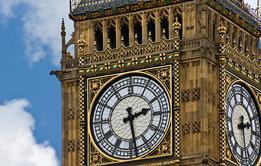The Devolution Bill lays the foundations for a reconstruction of the English state – and the NHS is far from exempt, writes Mark Dayan
The Devolution Bill, slowly making its way through Parliament, feels like a background presence in conversations about the future of the NHS. With just five months left to fill huge provider deficits, by any means necessary, and with the near certainty of junior doctors going on strike, worries about constitutional tinkering seem almost frivolous.
‘Once the Bill becomes law, a one-way process for future devolution will be in place for further transfers of power’
The healthcare devolution plans emerging from Manchester don’t immediately seem to take us into the unknown. In one light, the new NHS-led regional structure, with its emphasis on settling disputes and coordinating plans, looks not so very different to a good old regional health authority.
But the Devolution Bill lays the foundations for far more ambitious changes: a complete reconstruction of the English state, from which the NHS is not exempted.
New powers
At the heart of the Bill is a new power for the government, through relatively lightly scrutinised secondary legislation, to transfer the functions and property of any “public authority” to a county council or a combined authority. Public authorities include NHS England, CCGs, regulators, and trusts including foundation trusts.
‘The NHS will feel very different, even in areas pursuing more limited models of devolution’
The functions to be transferred could include not just the commissioning, but also the provision of every area of NHS care. Once the Bill becomes law, a one-way process for future devolution will be in place for years, and decades, of further transfers of power.
The NHS will feel very different, even in areas pursuing more limited models of devolution, based on health and wellbeing boards or delegation of NHS powers, as in Manchester.
Even without full control of commissioning, the county council or regional government may come to be understood by the public and NHS staff as the people ultimately in charge of the NHS locally. They will create narratives, priorities and goals for the local health system. They will have the authority to speak for the local system as a whole on disagreements or major decisions. The most ambitious people in the service will gravitate towards them.
Combined authorities and beefed-up councils might fit a formal or informal governing role well: they will have the democratic legitimacy and institutional clout that NHS commissioners have often lacked. But moving towards this would be a profound change.
System with many faces
The NHS would no longer have, as it has for decades, a single, identical structure of commissioning, provider and oversight bodies reproduced in each region.
’National and local authorities could scapegoat one another’
Mirroring the shift to diverse providers, every area could define and divide up these roles differently. The health service in Suffolk could look barely more similar to that in Norfolk than it does to the service in Northern Ireland.
Some in government hope devolution on this scale will ultimately succeed where Andrew Lansley’s Act failed in taking the national politics out of healthcare. But it will inject a lot of local politics.
When hospitals are financially struggling, or a care scandal is unfolding, the local or regional authority will feel the force of public demand to do something about it – the same force that drives the secretary of state and the Department of Health today.
National and local authorities could catch the NHS in the middle as they both push for their own initiatives and plans. Or they could step back to scapegoat one another – with the local authority blaming problems on austerity from the centre, and the national government professing to have nothing to do with the situation.
Future of funding
We need more clarity from the government about the crucial question of whether funding will follow these functions. Will the money currently given to CCGs based on NHS patient need, under at least some local plans, move into the same pot as other grants and local taxation?
’MPs still have a lot to do as the Bill continues to crawl through Parliament’
The logic of unlocking savings by sharing back office and estates, and investing in prevention, favours permissiveness in redirecting healthcare funding. But instinctive fears about pothole budgets and new brass knobs on the town hall will rise up in the NHS – while leaders elsewhere in local government will see the relatively abundant health budget as a resource to invest in reform.
MPs still have a lot to do as the Bill continues to crawl through Parliament. It has several anomalies where the NHS is concerned.
The special health devolution procedure on which Manchester will rely seems to exclude GP commissioning. Although government amendments have made some progress, the issue of which parts of past NHS legislation will still apply still needs to be addressed. A serious debate is needed to prepare professionals and the public for what is underway.
But the NHS must also prepare to take centre stage in devolution. Managers and clinical leaders need to make their voices heard through the long process of devolution ahead. And they need to prepare for a less national health service than ever before.
Mark Dayan is policy and public affairs analyst at the Nuffield Trust
MPs consider powers to transfer NHS functions in 'radical' devolution bill

MPs will next week consider “radical” plans to give ministers wide ranging new powers to transfer NHS functions, funding and assets to councils.
- 1
 Currently
reading
Currently
reading
Be prepared for a less 'national' health service
- 3































6 Readers' comments